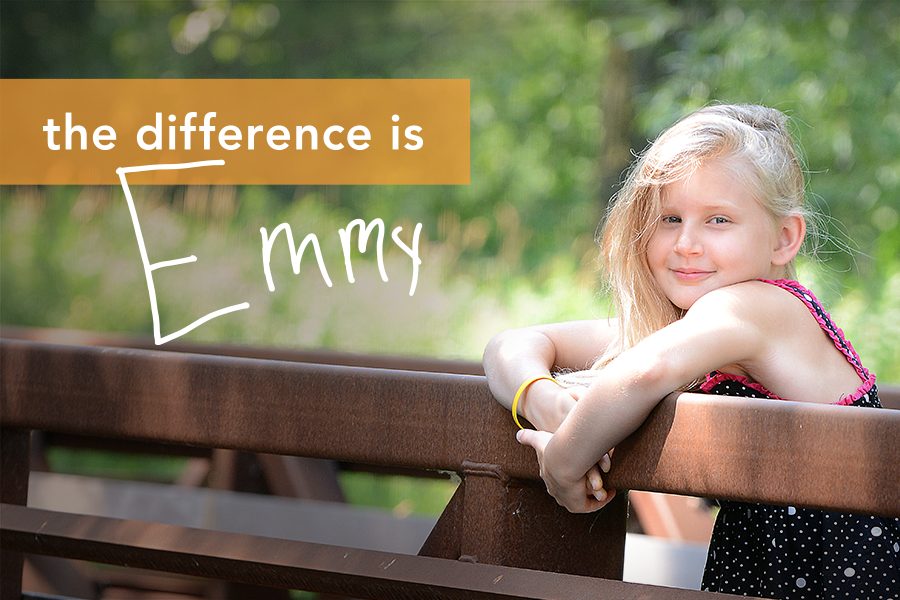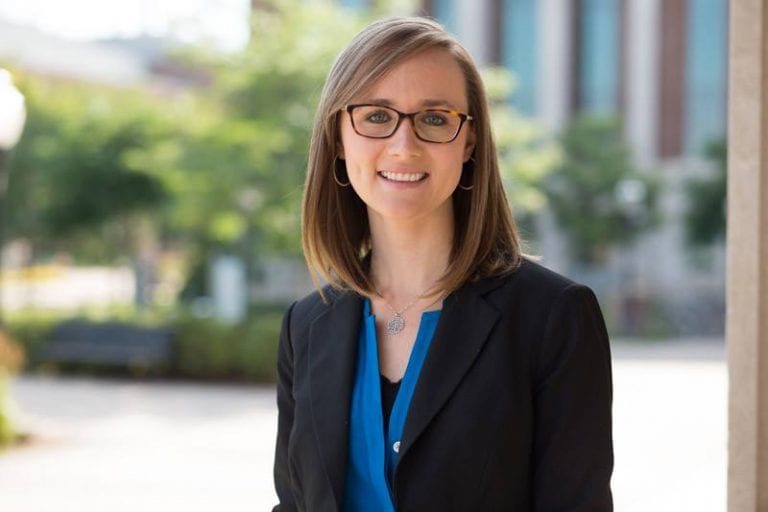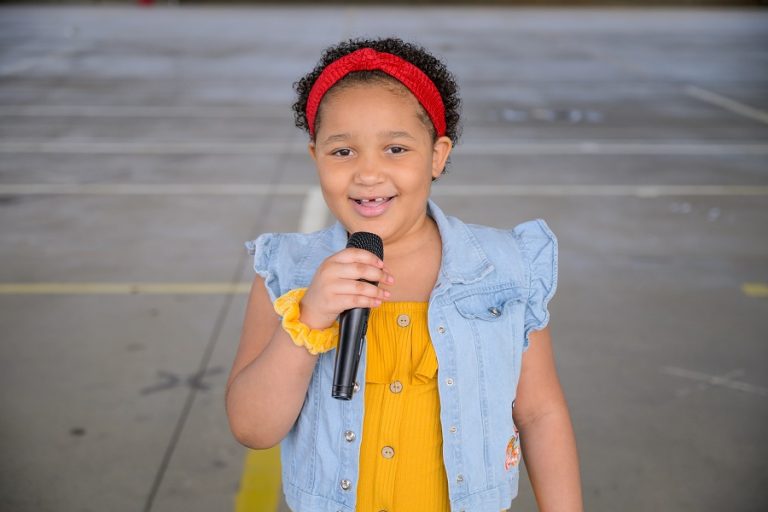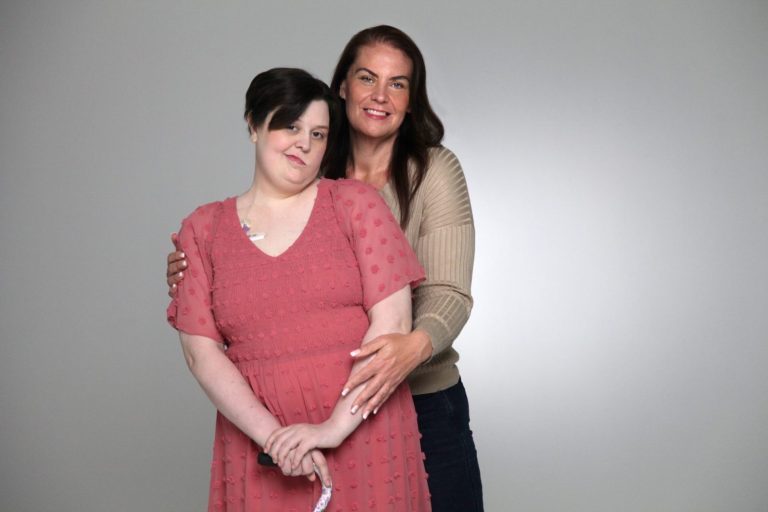Flipping up her sandy-blond ponytail, 8-year-old Clementine showed us the scar across her skull from brain surgery. “See, I bet you didn’t even notice it!” Just a few months after the surgery, this energetic girl hopped on her bike and rode around the block – with just a little wobble.
Today, brain cancer kills more children than any other childhood cancer, recently surpassing leukemia. Research for better, safer treatments is critical to keep kids alive and well. Thanks to supporters like you, we’re funding innovative research that could prevent brain cancer from returning.
Before cancer, Clementine (“Emmy” for short) loved running around in pink tutus.
But surgery, radiation, clinical trials and traveling between Pennsylvania and Minnesota left the usually sprite girl feeling nauseated, battling high fevers and extremely exhausted. “Before, she was a fearless cannonball of sunshine, style and attitude,” said Rebecca, Clementine’s mom. “After, she is at times a reluctant ray of sunshine who loves hanging out at home.”
It all started in late fall 2016, when Clementine had a splitting headache at school. Her grandpa brought her home, and by the time they reached the house, she had passed out and was unable to walk. Her family took her first to the pediatrician, then to the emergency room.
Throughout the week, the crisis unfolded. An initial CT scan revealed bleeding in Clementine’s brain, and doctors would have to perform a difficult surgery to remove what they presumed was a tumor that was located in a part of the brain where spinal fluid is made and circulated and where motor functions are controlled.
After surgery, Clementine was given an official diagnosis of glioblastoma multiforme. She’d begin her treatment plan with radiation and enroll in a phase II clinical trial in Pittsburgh to prevent more brain tumors from growing. The trial treatment, a vaccine, works like an immunization and is tailor-made for each patient. The lab uses Clementine’s blood to create a customized antigen vaccine that has to be administered within 45 minutes after being created. She then receives an immune booster in a separate injection.
Though a promising trial, the drug leaves Clementine with some detrimental side effects such as swollen welts on her legs, soreness and fevers.
Clementine has months of treatment ahead of her, but she’s still doing her favorite things. Singing puts Clementine in her happy spot, and she loves drawing on scraps of paper and leaving them around the house. “If she’s mad at you, she’ll draw a picture of a broken heart and give it to you,” said Rebecca. “She is so creative.”
During Clementine’s treatment this spring, Rebecca found herself tearing up — not out of frustration or sadness from all that they’d been through but because she saw that Clementine had hopped on her bike and rode around the block—just three months after surgery.
“[Clementine] is starting to show more spark and energy each day,” said Rebecca. “We’ve been given so many gifts, and we don’t know how long we get to keep them, but man — we’re going to enjoy the hell out them while we have them.”
CCRF-funded scientists have already discovered how to make a vaccine more effective in dogs with a certain type of brain cancer, and they’re hoping to bring the treatment to human clinical trial next year. Researchers are also investigating the genes behind medulloblastoma, a deadly brain cancer. Your support is changing the childhood cancer landscape for kids like Clementine.
You can make a difference today.
Share Clementine’s story and help build awareness.




